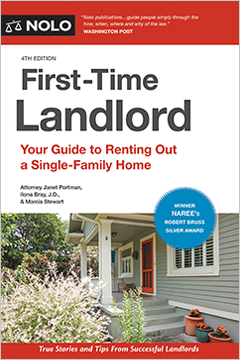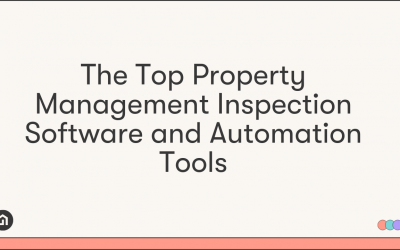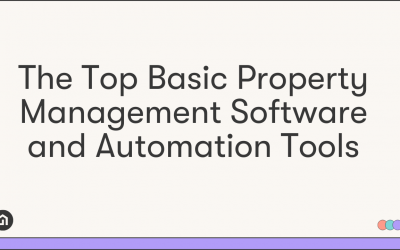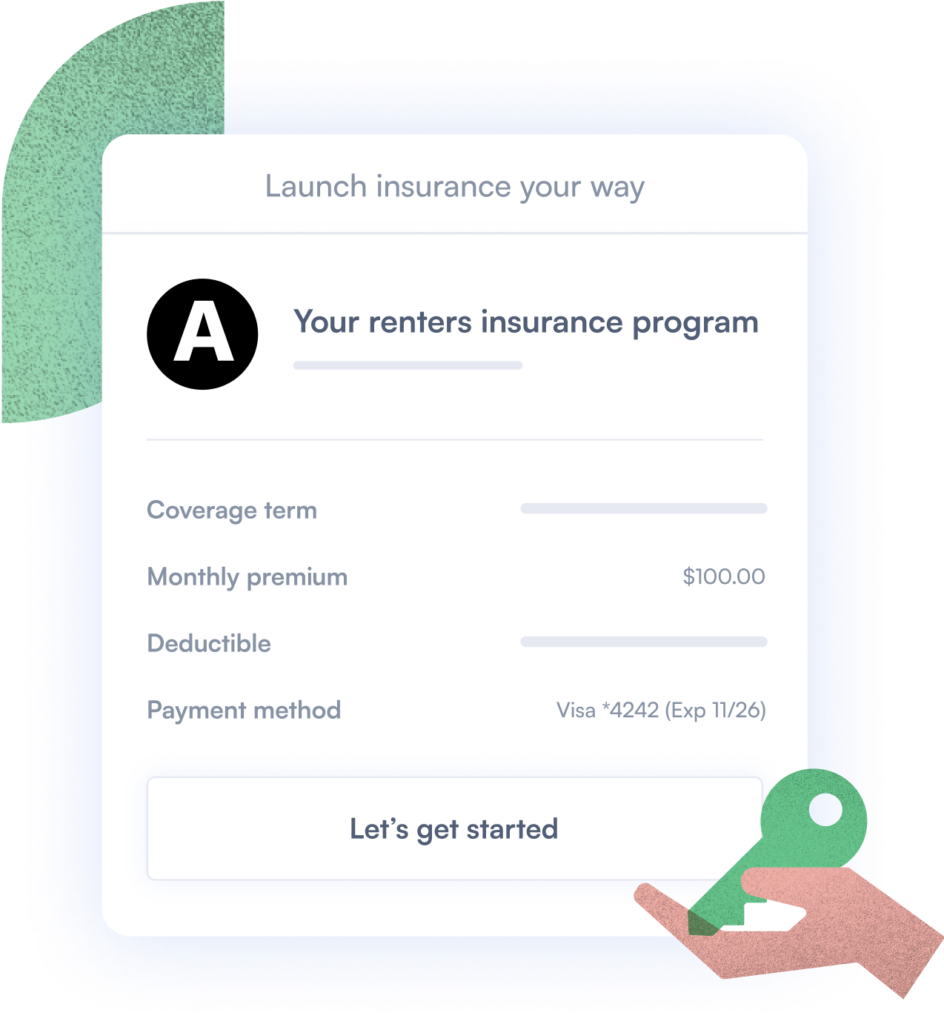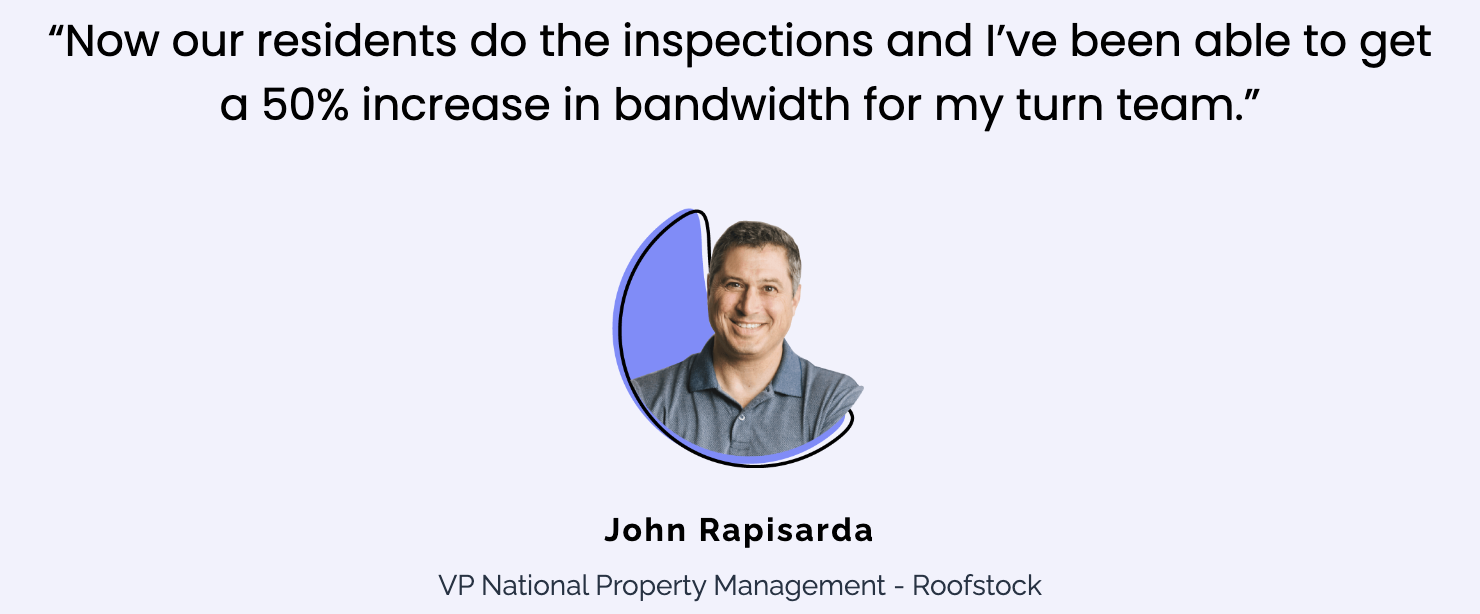My Takeaway
Nolo.com’s First Time Landlord is a great resource for new landlords. The book’s subtitle is “Your Guide to Renting Out a Single-Family Home”. The book reads more like a reference manual than a guide. It is full of checklists, worksheets, and bulleted summaries of the information you may need.
Also, the authors have strong legal backgrounds. Throughout the book, it touches on the operational intricacies of landlord and dives deep into legal and tax consequences. I believe for first time landlords, it is better advice to hire a good attorney and tax accountant and put your own efforts toward learning as much as possible about the daily operations. Self-service legal and tax help can be incredibly expensive, whereas self-service operations can greatly simplify your life and improve cash flows.
The book is a good resource to have as a quick handbook to point you in the right direction for legal aid. If you are uncertain about some laws, it will help you be more educated when you talk to a professional who knows what they are doing. However, when it comes to the practical day to day, the book offers unhelpful advice. For example, early in the book it recommends charging below market rates for rent in order to attract tenants who will take care of the place because you are treating them “fairly.” My experience has been the opposite. You should charge market rates, attract high quality tenants, and treat people fairly. It does not have to be a tradeoff. The book also cautions against raising rents on current occupants. While it is true that raising rent by $50 loses you money if the tenant moves out, you also have to wonder how financially stable your tenants are (or how poor the value your home is offering!) if $50 is the difference between staying and moving out.
Overall, I recommend this book for the legal and tax advice, but avoid the operational advice. Below is a summary of the books key topics and links to resources that will help you dive deeper if you want to.
Will Landlording Bring you Money and Happiness?
- Being a landlord has many positives and negatives. The positives include additional income, an investment with a strong underlying asset (property) that does not fluctuate much in the long run. On the negatives, there are the human issues of dealing with tenants and their needs 24/7, potential large expenses for repairs, and the legal and financial complexities involved.
- For single family homes, strongly consider the attributes that would make YOU value a home. In single-family home rentals, the layout and aesthetic is a huge opportunity to improve value.
- When considering renting out a condo or a home in an HOA, pay special consideration to the additional HOA rules. Some HOAs place restrictions on renting. Also, homes inside HOAs tend to appreciate more slowly in value compared to single-family homes.
- Typically when borrowing money for single-family homes, the value of the home and potential rents is less important than your own debt-to-income ratio. Federal guidelines say a borrower’s total debt-to-income ratio should not exceed 43% for a “qualified mortgage.” You can use a tool at MortgageCalculator.org to calculate your debt-to-income ratio.
- While buying foreclosed properties is an option (and can be quite lucrative), you should be aware of the risks: you do not have the protections afforded to a buyer of a non-distressed property, different states have different periods where the foreclosed occupant can buy-back their property, you are competing with experienced investors with cash on-hand, and the houses are usually distressed and have lots of deferred maintenance and potentially liens on the home. Resources:
- Homesales.gov – Properties for sale by the government
- https://www.foreclosure.com/
- https://www.realtytrac.com/
- https://www.propertyshark.com/
Landlording with Family or Friends
(All of the below may vary from state to state. Consult an attorney before proceeding with any of the advice below)
- Co-owning takes all of the downside risks and splits them proportionally among the co-owners. This also splits the upside. Overall, the main benefit of co-owning means you (and your partner(s)) can reach properties that you could not afford on your own, with lower individual downside risk. However, the complexities are greatly increased.
- Pick your partners carefully: will they hold up their end of the agreement? Will they pay their share of the mortgage when there is reduced or no income? Will you have trouble when you want to sell? Or will they be able to sell early.
- If you are unmarried partners buying together, you can either join as tenants in common, joint tenants, or form a business entity, such as an LLC.
- Tenants in common — each tenant can own unequal shares of the property. You each have full rights to the property, but each of you can sell or transfer their share at any time without anyone else’s consent.
- Joint tenants — Like tenants in common, except they must have equal shares of the property, and if someone dies, the property immediately passes to the other tenant. This is most common with married or other long term domestic partners.
- Forming a legal entity — While this is the most complex legally, it is the simplest when it comes to dividing shares, interests, and liability between partners. Ultimately, your rental property is a business. My recommendation is you should treat is as one and form a legal entity to own it. If you plan on owning multiple investment properties, this can help protect you from liability from one property affecting the others.
- Downsides of operating as an LLC
- More difficulty getting financing — Unless your business already has a long income track record, you will likely still have to personally guarantee the loan.
- “Due on sale” clause — many loans have a “due on sale” clause, which makes the entire loan amount due if you transfer. You need to talk to your mortgage lender about transferring title without invoking this clause.
- 1031 exchanges are more complex — You cannot do a 1031 exchange on your portion of the LLC. Instead, the LLC must do the 1031 exchange with the entire ownership interest. Regardless, you should consult tax professionals when considering this.
- Co-ownership/Operating agreements help manage the relationship between owners.
- How will you decide on tenants? More importantly, who decides?
- What are the owners’ rights to use the property?
- How will responsibilities be divided?
- How will expenses and profits be shared?
- How will expenses for larger improvements be split?
- What happens if one of your cannot pay their mortgage? Is the mortgage assumable?
- How will the property be insured?
- What are the terms of the lease agreement?
- What if someone wants to sell?
- What if one of you dies?
- How will you resolve disputes?
Preparing and Marketing Your Rental
- If the home has not been inspected, hire an inspector. Visit the American Society of Home Inspectors for more information. You are legally required to rent out a habitable home. The meaning of this varies from state to state and there may be additional rules for localities. The home inspector should be able to tell you what is legally required. Don’t be cheap and expose yourself to a lawsuit or a tenant (justifiably) withholding rent.
- If you are not willing to make improvements to a property in order to make it rentable, remember, the same improvements are required to make it salable. A buyer will expect a steep discount on a home that is not up to code.
- Many improvements to a rental property are tax deductible. Save your receipts and consult a tax professional.
- Basic improvements, such as power washing sidewalks and updating paint can have significant returns on rentable value.
- There is a lot more to consider than just rent. For example, pet policies, included utilities, etc. Consult your local regulations for what is legally allowed to require or prohibit.
- Let neighbors know how to contact you in case they have complaints about your tenants. You want to know about these issues and be able to document complaints (it makes evictions easier if required).
- Avoid showing rentals while they are still occupied, particularly if the tenants leaving have a bad relationship with you. The negative value they bring may outstrip the lost rent due to an additional week of vacancy.
Screening Tenants
- Plenty of landlords claim their gut knows better than any rental application. Don’t be a fool. Use an application so you can understand a tenant’s employment, income, credit, and rental housing history.
- Make sure the application is complete and that you have a signature authorizing you to proceed with all of the background and other checks.
- Have each occupant over 18 complete an application, even if they are married or related to an existing tenant. FinRet provides low cost applications, background checks, and income verification tools.
- Ask for references and actually check them. You can learn a lot from their previous landlords.
- Be careful to avoid illegal discrimination: Federal law prohibits discrimination based on race, religion, national origin, gender, family status, and physical or mental disability (which include recovering alcoholics or drug addicts). Many cities and states expand this definition to include marital status, military status, sexual orientation, gender identity and source of income. As of 2017, California and New York are the only states that prohibit landlords from demanding proof of legal residence. In summary, be careful that the reason you are rejecting someone is NOT because of a legally protected status.
- Reason you are allowed to reject an applicant include: poor credit history, insufficient income to pay rent (it is a good idea to require at least 3x the monthly rent in income), negative references, convictions for criminal offenses (some states limit this to violent sexual crimes only), inability to meet the legal terms of a rental agreement (e.g. no pets), more people than you want to live in the unit, as long as your limit is legally allowable (e.g. based on health or safety reasons).
- If you reject a tenant based on information in a credit or tenant-screening report, you are legally required to tell the applicant where you got the information (you can’t just say you found a better applicant). More information can be found on the FTC’s website under “Adverse action reports”.
Preparing a Lease and Getting the Tenant Moved In
- A Lease vs. a Rental Agreement: They are largely the same except for their duration. Leases typically last 1 year and a rental agreement goes month-to-month.
- Be careful when using pre-printed forms from the internet. They usually ignore local regulations. Even when finding a state-specific lease, there may be additional city or county regulations to consider.
- State and local laws my dictate the legal terms around late rent fees, insufficient funds charge, security deposit limits and uses (and whether or not they must be returned with interest and how much), tenant’s rights, landlord notice to enter a property, notice required to end a tenancy, and required disclosures.
- Be certain to include language around rules and behaviors, especially if no-cause evictions are illegal in your city or state.
- Non-refundable fees are a tricky subject in many states. Tread carefully.
- In general, many states have specific rules and regulations around the landlord-tenant relationship. This does not have to be burdensome if you are educated about the rules and prepared to handle them. Remember: ignorance of the law is no excuse for breaking it. Would you ever accept a tenant’s excuse: “Well, I didn’t know that was in the lease”? You have responsibilities as a landlord just like your tenant has responsibilities as a renter.
Maximizing Tax Deductions
- Keep a separate bank account and credit card for your business finances. Do not intermingle your personal and business expenses!
- You can deduct up to $5,000 in start-up expenses in your first year of business. If the expenses exceed that, then you can deduct the remainder in equal amounts over the first 15 years in business. It is better to keep startup costs low and then cover the remainder as operating expenses.
- Many expenses are included in operating expenses. Be sure that it isn’t for personal use and it is for business use in the current year.
- Traffic tickets and fines are not tax deductible. Also, if you commingle personal travel with business travel, you may limit the amount you can deduct. If you spend at least 4 hours per day on business activities (e.g. attending a seminar), then you are protected. Also, you can deduct a “per diem” for meal expenses to avoid deducting specific meals.
- Business gifts are limited to $25/gift recipient/year (with an exception made to gifts given to all employees, as long as they are reasonable).
- Keep detailed notes on tenant requests to prove expenses are tied to maintenance, upkeep, and repair.
- This section has many legal rules and details. Consult a tax attorney and do additional research to be informed. Specifically, look for an Enrolled Agent (EA) or Certified Public Accountant (CPA) for the most reliable help. Being cheap and going with a simple tax preparer will end up costing you more money.
A note on avoiding large expenses: One source of high expenses is when a tenant is not in the habit of calling you for minor issues before they turn into major repairs or emergencies. This book says such a situation frequently happens when landlords aren’t responsive to tenant’s early calls. You can avoid this using Latchel’s 24/7 Receptionist Service.
Repairs and Maintenance
- You are legally required to make your rental habitable. Even if a tenant signs a lease on a property that does not meet the legal definition of “habitable” you must make the repairs to bring the property to habitability. Protect yourself from tenants who may withhold rent (and take you to court over it using free representation resources available to them!). It is much cheaper for you to be a good steward of your property.
- If you fail to make necessary repairs that fall under “habitability” issues, the tenant is able to leave and not legally required to pay you rent dating back to when you should have made the repair. If you aren’t willing to lose several months of rent (or more) over a repair that affects a unit’s “habitability” then you are better off making the repair.
- Beyond just habitability, you are required to maintain the equipment you provided, especially if you advertised it, e.g. washer/dryer or working hot tub.
- Tenant responsibilities include: not damaging the property, keeping it clean, and using the appliances, plumbing, HVAC, etc properly. That includes replacing filters, etc. regularly. You can save significant money by reminding tenants of required maintenance, such as replacing filters on air conditioning. Tenants are also required to fix their own damages and to promptly report problems with the rental.
- What can a tenant do if you don’t meet your obligations?
- Withhold rent (in many states, legally they can put it in an escrow account until necessary repairs are made).
- Repair and deduct. You may be tempted to do this because it is less hassle for you–but you are missing out on a tax deduction because the receipt or invoice is not in your name.
- Report violations to housing inspectors.
- File a lawsuit.
- Move out.
- Here are some suggestions for creating a good maintenance and repair system:
- Inspect and make repairs before a tenant moves in so they are not moving into a property with known issues.
- Tell the tenant about their responsibilities and point them out in the lease agreement.
- Educate your tenants on proper use and maintenance of their appliances and fixtures.
- Be accessible so tenants can report problems to you easily.
- Keep a written log of all complaints (include those made orally or over the phone).
- Respond quickly and keep tenants informed when scheduling repairs is taking longer than 2 business days. (Latchel can handle the previous three for you automatically with its 24/7 Receptionist service for landlords).
- Have a biannual tenant review to report issues.
- Have an annual safety inspection (done by you or a qualified inspector).
- Remind tenants you care about maintenance.
- You can save a significant amount of money by doing repairs yourself. Make sure you can follow-through on them and that you are being responsive to tenant requests. Otherwise, your savings may be eaten up by turnover or unanticipated repairs (see the note above).
The Rest of the Book
The remainder of the book covers more nuanced topics, including:
- Landlord liability for injuries, crimes and more — be careful about authorizing tenants to make repairs, you may be liable if they injure themselves or someone else.
- Dealing with difficult tenants — how to handle them, resolve them, or deal with them as evictions.
- Whether or not to hire a property manager — The number one reason landlords turn to property managers is because they don’t want to deal with tenants or deal with their maintenance requests.
- Exiting the property management business.
- Rent-to-own arrangements.
- Subletting a room in your home.





